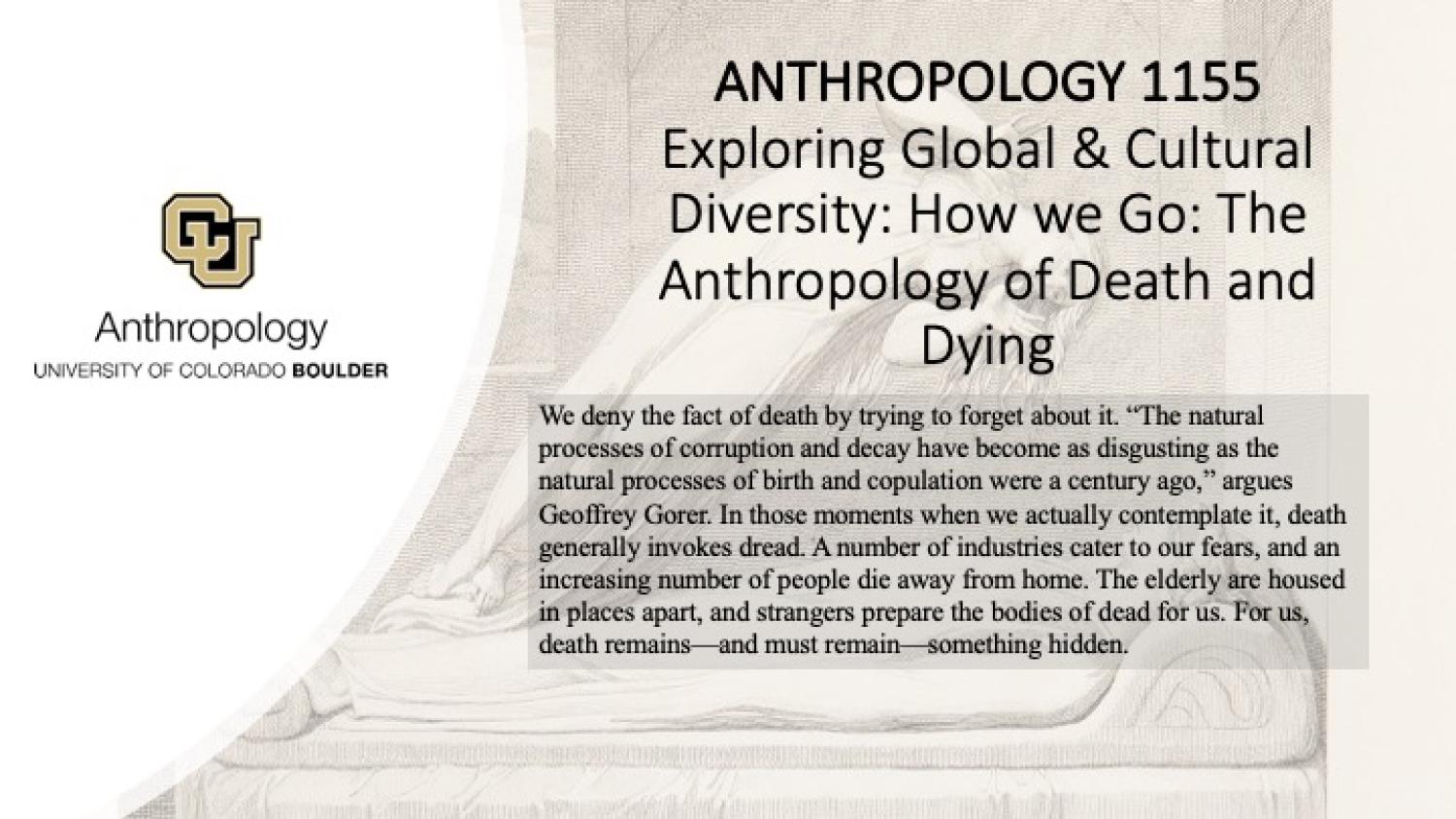ANTH 1155 Exploring Global & Cultural Diversity: How we Go: The Anthropology of Death and Dying

We deny the fact of death by trying to forget about it. “The natural processes of corruption and decay have become as disgusting as the natural processes of birth and copulation were a century ago,” argues Geoffrey Gorer. In those moments when we actually contemplate it, death generally invokes dread. A number of industries cater to our fears, and an increasing number of people die away from home. The elderly are housed in places apart, and strangers prepare the bodies of dead for us. For us, death remains—and must remain—something hidden.
This class reads death against the grain: By studying the ways people in other societies navigate the end of life, we will see that there is a variety of possible responses to human frailty and finitude. Students will learn about the diverse ways human beings respond to their finitude, mourn their dead, and imagine the afterlife. Examples of topics that we will cover include: mortuary rituals and funerary behavior, the cultural construction of death, the effects of death on the social fabric, morning and bereavement, hospice and end-of-life issues, and medical and ethical issues relating to death. Throughout the course, students will examine the variety of social and cultural responses to the biological fact of death. We will see that death is an integral part of human life while appreciating the tremendous diversity of cultural attitudes toward death.
There are two required books for this course: Erik Mueggler’s The Age of Wild Ghosts and Beth Conklin’s Consuming Grief: Compassionate Cannibalism in an Amazonian Society, which will be in the University bookstore. All other required readings will be posted on the course site as Adobe PDF files. Some of the files are large, so it is recommended that you use a high bandwidth connection to retrieve them. The readings are listed on the course schedule below and must be completed prior to the assigned due date (the Monday of the week for which they are assigned).

